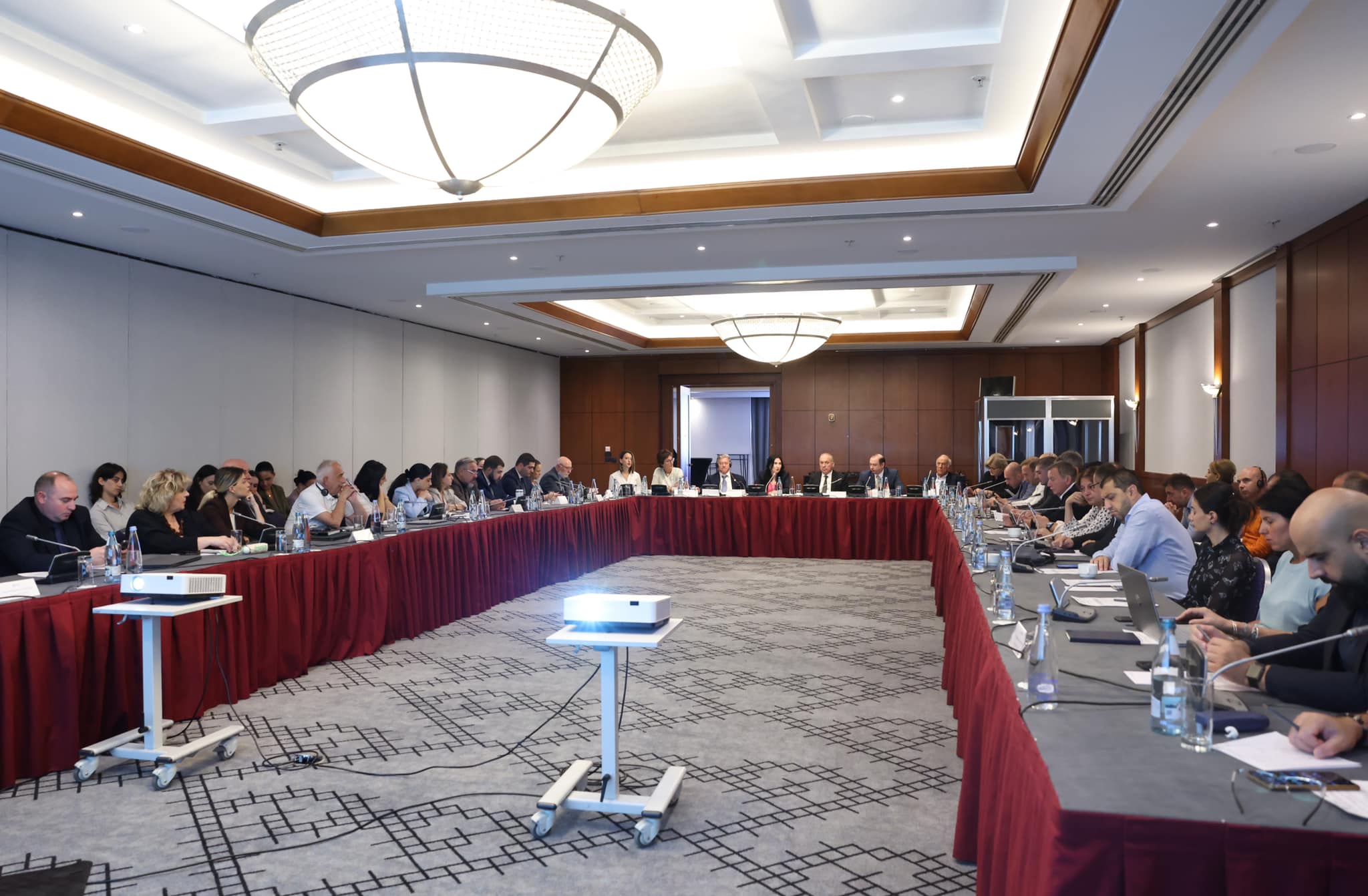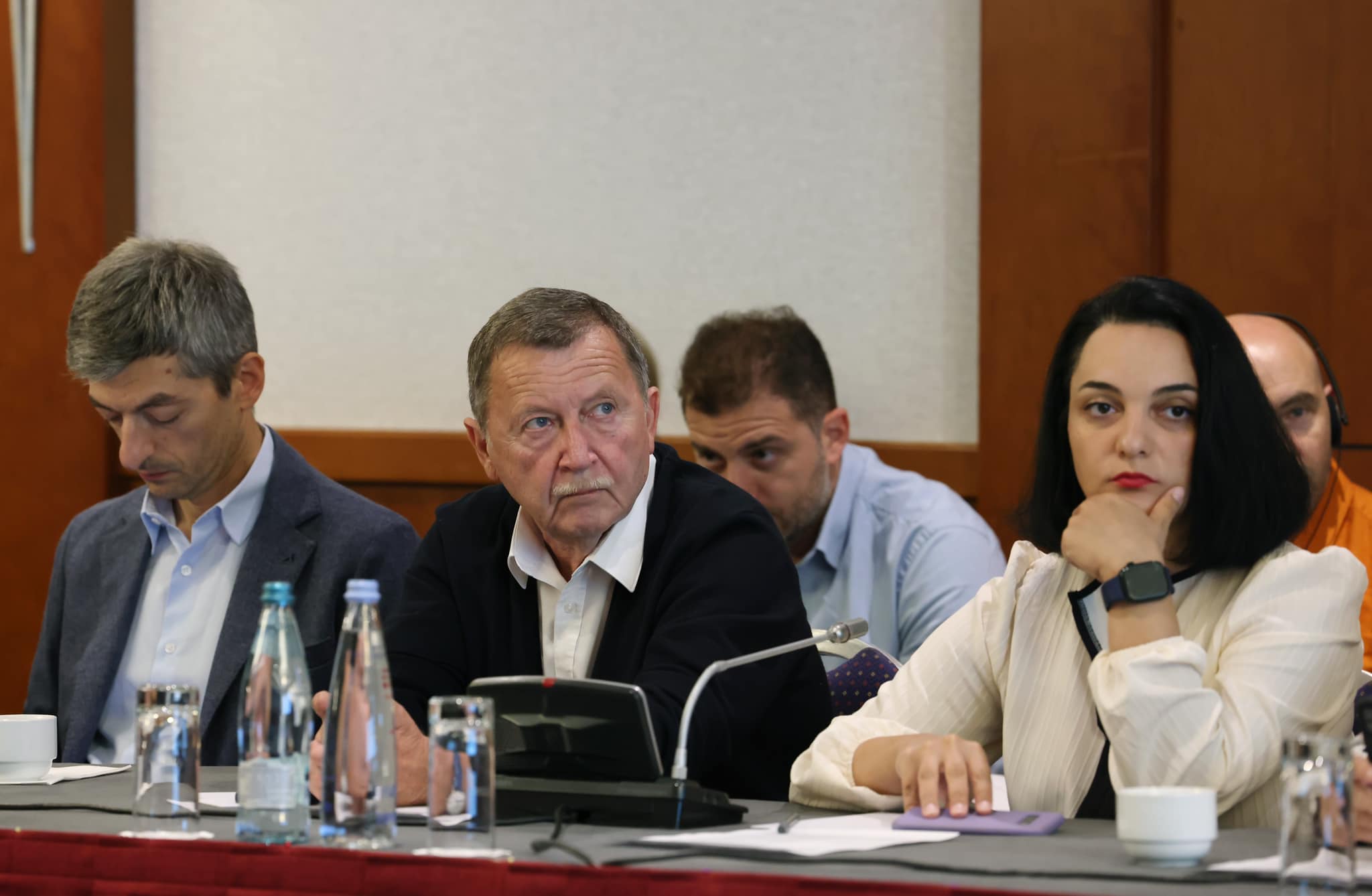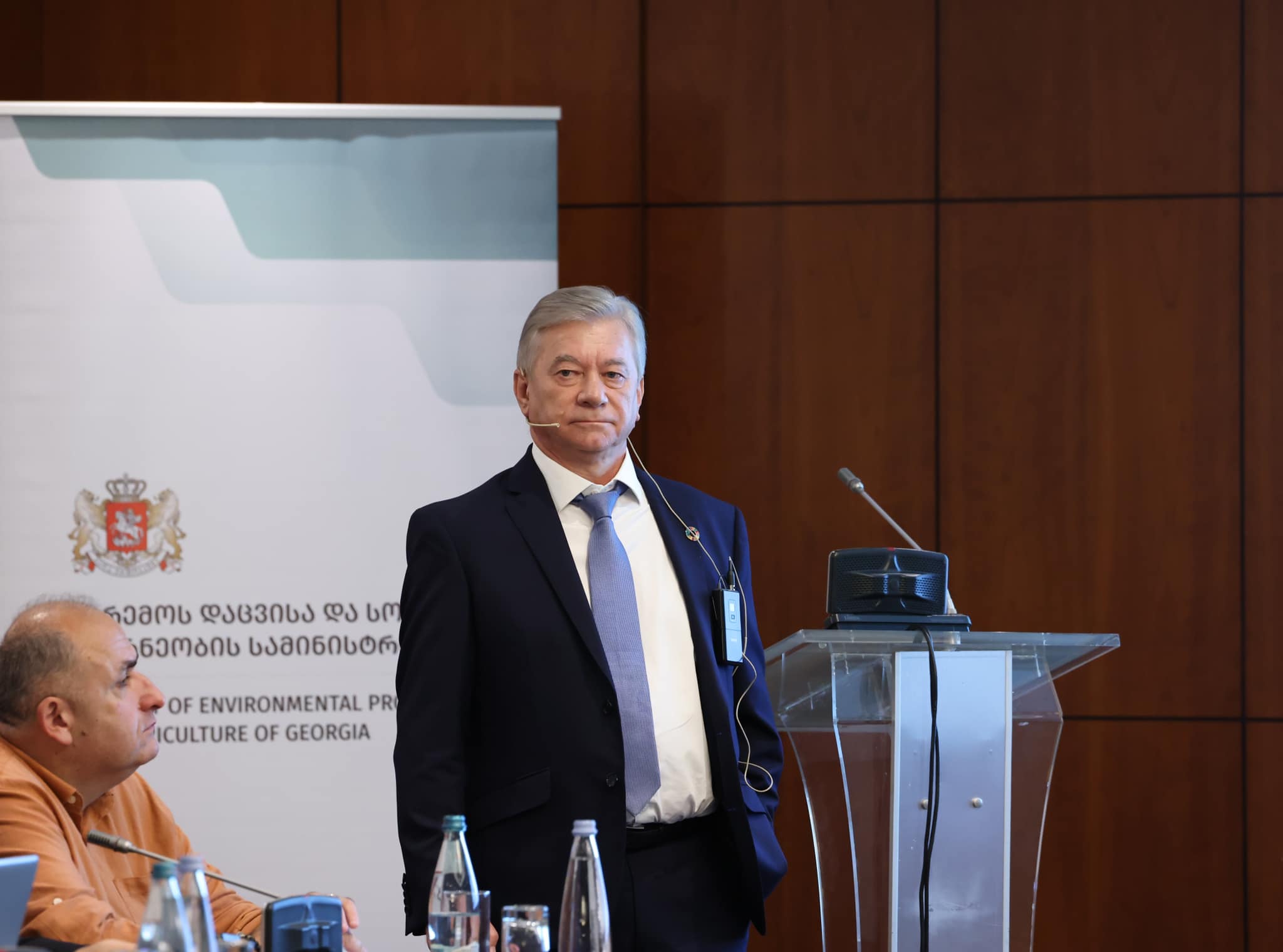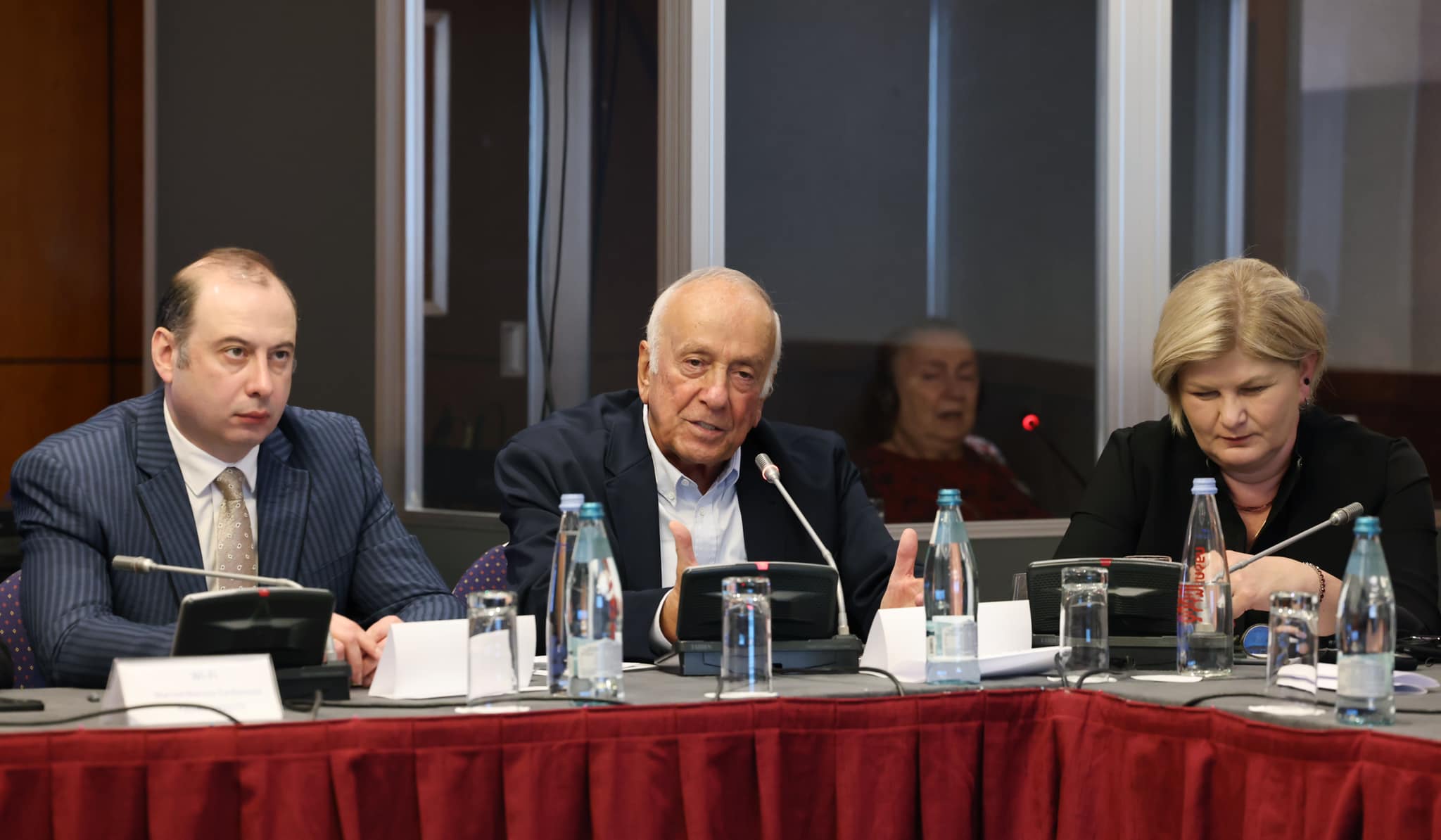News
Due to its efforts towards fostering a Circular Economy, Georgia is among the top candidates for joining the EU
Mr. Solomon Pavliashvili, Deputy Minister of Environmental Protection and Agriculture of Georgia, Mr. Mikheil Dundua, Deputy Minister of Finance of Georgia, and Mr. Giorgi Kvesitadze, General Adviser to the President of the National Academy of Sciences of Georgia, attended the presentation of ''Georgia's National Roadmap for Transitioning to a Circular Economy''.
The national roadmap serves as a strategic plan outlining the long-term vision for transitioning to a circular economy and determining the top initiatives needed to achieve, including reducing the municipal solid waste and waste generation, increasing the overall waste recycling rate, restoring areas damaged by illegal dumping, minimizing energy consumption in transportation networks and reducing raw material losses, increasing energy efficiency, improving land and water resource management and material yield, and creating new green jobs.
The Deputy Minister claims that during the past five years, the Government of Georgia has made significant progress toward transitioning to a circular economy, including developing the rules and regulations in compliance with the EU legislation.
Based on the evaluation of global experts, Georgia stands out among EU candidates for membership due to its progressive steps toward a circular economy.
"All our efforts were based on the recommendations of the European Union. We are making progress gradually; increasing public awareness of the circular economy was the first step. Moreover, we held meetings with policymakers, representatives of non-governmental organizations, and business groups at all levels. Thus, the next step was to evaluate the potential, which we divided into different sectors. There are sectors where adopting a circular economy can be the most effective. Ultimately, the next step is the national roadmap, which will define the nation's circular economy strategy, eventually enabling us to draft a policy document," said Mr Solomon Pavliashvili.
The Deputy Minister of Finance focused on the economic growth rate and establishing a high-standard economic system.
According to Mikheil Dundua, making economic progress while maintaining high environmental standards is crucial for the Government of Georgia. The current high economic growth process needs to focus on environmental protection, ecology, circular economy, and the proper use of resources.
According to the General Adviser of the President of the National Academy of Sciences of Georgia, the development and implementation of circular business models require innovations and research.
"The Members of the National Academy of Sciences started exploring circular economy-related issues years ago.
The Academy of Sciences shows great interest in assessing the circularity level of the economy and preparing the Circularity Roadmap. We receive valuable recommendations in the mentioned processes", noted Academician Giorgi Kvesitadze.
The work on the circularity roadmap has been launched since September 2023.
The Government of Georgia created the Inter-Agency Coordination Council to promote the transition to the circular economy, while the expert team of the Union of Nature Researchers of Georgia "Orchis," including international experts, are working on the roadmap.
The roadmap was developed with the financial support of the Swedish government within the framework of the "Governance Reform Fund" (GRF) project of the United Nations Development Program (UNDP) sub-project "Supporting the Government of Georgia in Enhancing Governance & Policies for a Transition to a Circular Economy".



